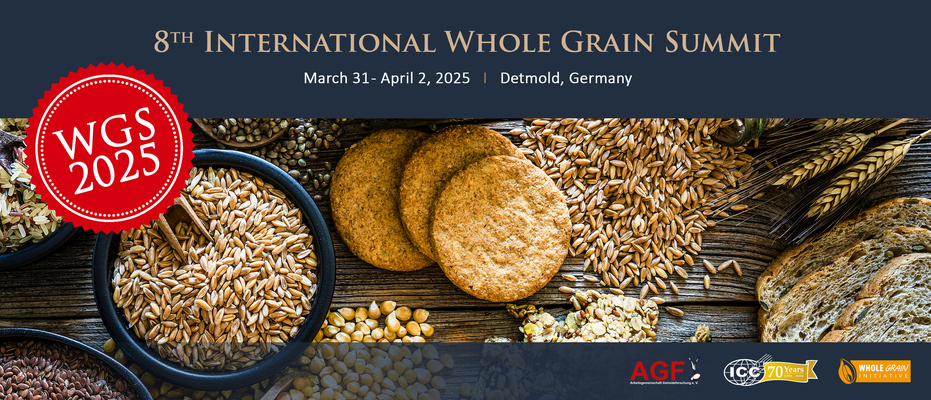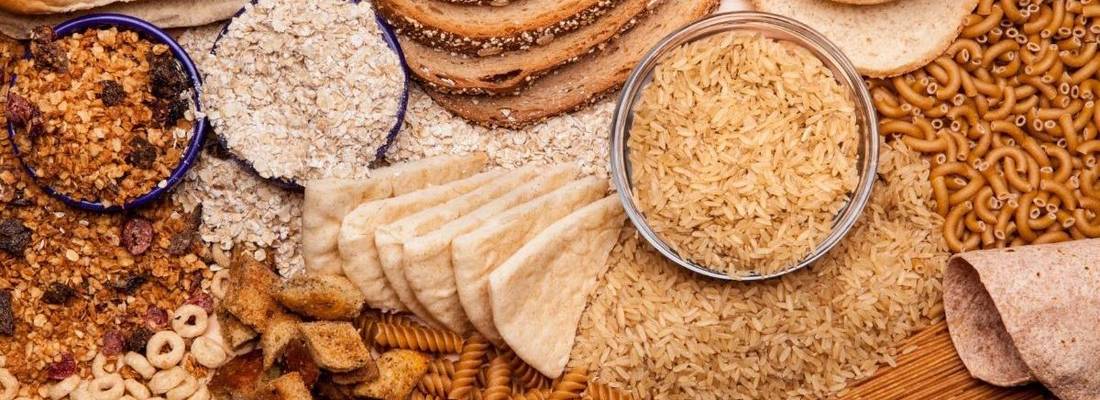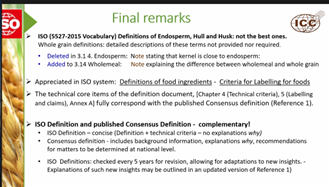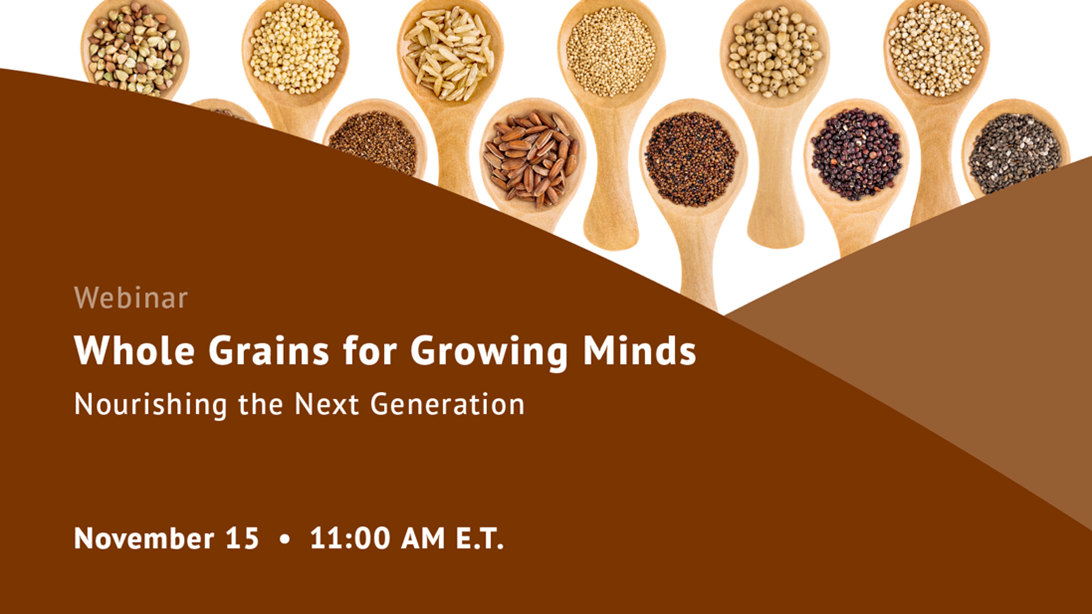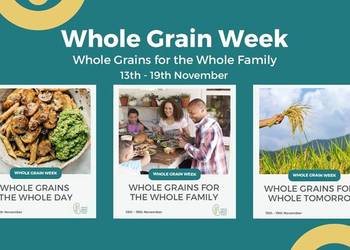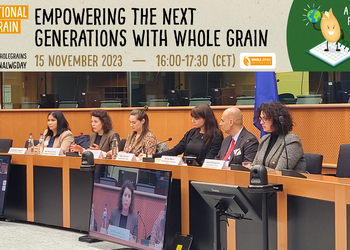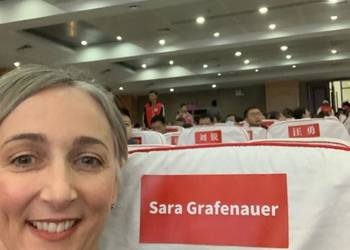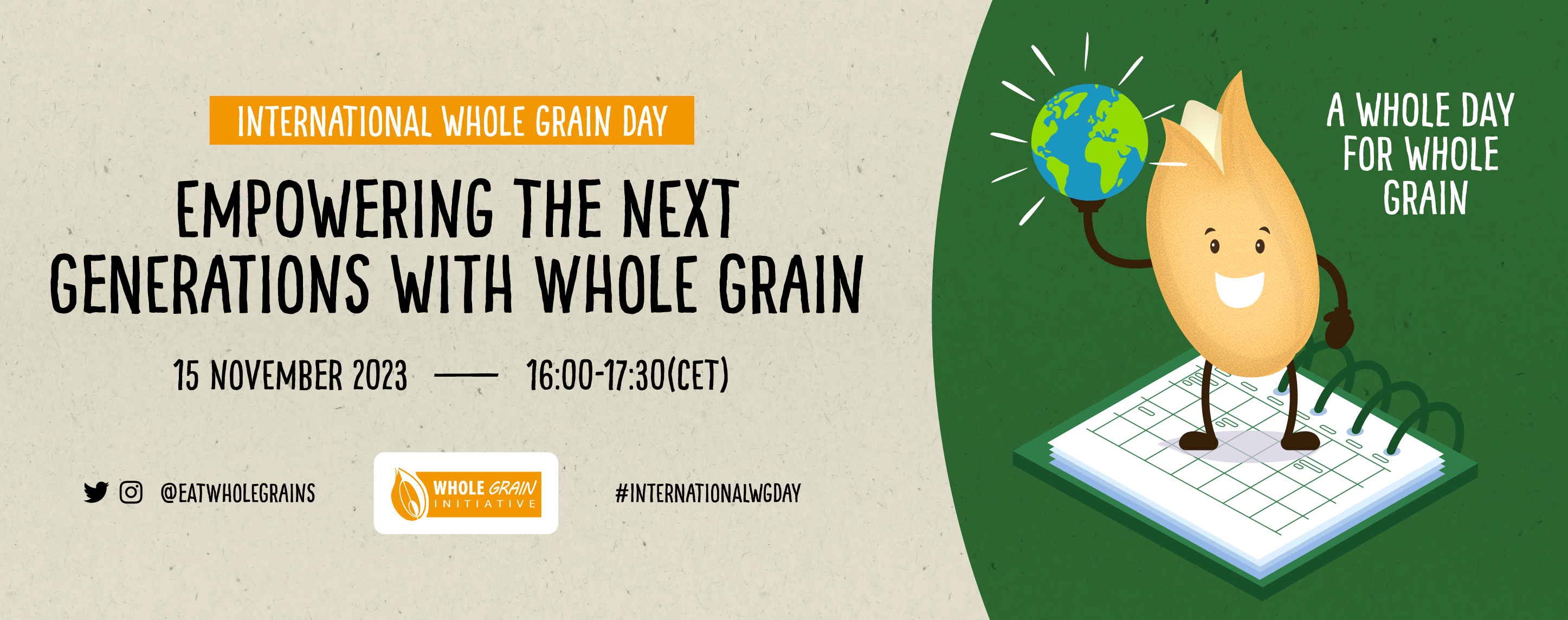Scientists and nutritionists agree – a diet rich in whole grains significantly reduces the risk of developing serious chronic conditions such as type 2 diabetes, heart disease, and even some cancers. And because of this, the Whole Grain Initiative has such a clear purpose: we want to get more people eating more whole grain. By encouraging everyone, young and old, to eat more whole grain, we’re not just promoting better health – we’re creating sustainable food habits which will benefit generations to come.
On this year’s International Whole Grain Day, leading experts from policy, education, research, and nutrition came together to consider the idea of “Empowering next generations with whole grain”. The conclusion of the event was clear: whole grain is key to better health and a sustainable future. But how can we translate this knowledge into action?
PLANTING SEEDS FOR A HEALTHIER FUTURE
The nutritional superiority of whole grains was emphasized by Peiman Milani, from the The Rockefeller Foundation who pointed out that whole grains are, on average, “three times more nutritious than their refined counterpart”. Echoing this, Professor Marco Springmann from EAT Lancet and University of Oxford University added “about 2 million people each year die from dietary-related diseases related to low intake of whole grain.” He reminded the audience that the EAT-Lancet report recommends eating over 200g of whole grains per day. Springmann emphasised that acquiring healthy food behaviours, including the incorporation of whole grains, in childhood, significantly increases the likelihood of maintaining a balanced diet in adulthood, acting as a protective measure against diet-related diseases.
Despite robust scientific evidence supporting the health benefits of whole grains, a significant number of people, both adults, and children, currently don’t have enough whole grain in their daily diets. This is mainly due to a lack of awareness about whole grains and uncertainty on how to integrate them into meals.
If we’re to increase the amount of whole grain in diets, one concrete step is giving children, and those responsible for their wellbeing, the tools they need to understand the importance of whole grains.
FOSTERING WHOLE GRAIN LITERACY IN CHILDREN
Overcoming this nutritional gap requires educational efforts and a shift in mindset, encouraging simple dietary changes. Recognising the need for action, Manuela Ripa, Member of the European Parliament suggested “actively advocating for nutritious, healthy and sustainably produced food consumption, implementing educational programs within our schools.” She noted, “we have the opportunity to empower future generations that we should not miss”.
Fatima Hachem from Food and Agriculture Organisation of the UN (FAO) emphasised that “nutrition education needs to be integrated within the school system and food system”, stressing that “school meals present a valuable opportunity for children to learn about heathy and sustainable diets”. Ioanna Bakogianni from the EU Science, Research and Innovation shared some examples of school food policies focused on enhancing whole grain intake in meals. She emphasised the importance of integrating whole grain into the food procurement process of schools, ensuring an increased inclusion of whole grain portions in school meals.
Camilla T. Damsgaard from the Københavns Universitet - University of Copenhagen explained that, in Denmark, including nutritional education into the curriculum and working with canteen staff to offer whole grain options, had helped ensure children are equipped with the knowledge and choices that promote healthier habits.
Peiman Milanishared a success story from Rwanda, where, following a large pilot in a school meal programme, children - and in some cases, families as well - displayed an increased interest in and preference for whole grains. This highlights the positive impact of incorporating whole grains into school meal programmes and the potential for shaping healthier dietary preferences from a young age.
EQUIPPING PARENTS WITH TOOLS TO IDENTIFY WHOLE GRAIN
Parents play a crucial role in shaping their children’s dietary habits and clear labelling is key in assisting them. As Manuela Ripa MEP noted, front-of-pack labels “help parents make informed and healthy choices”. Sara Lamonaca from FoodDrinkEurope advocated for “campaigns to raise awareness about the health benefits of whole grain consumption” promoting the availability of products with higher whole grain content in the market. She called for labels to “empower consumers to identify products having a higher content of whole grain”. Labelling is not just informational, it’s a tool parents can use to identify and choose whole grain products as they shop, making it easier for them to add whole grains into their daily meals.
The panel heard from Camilla T. Damsgaardabout the positive impact of the Keyhole and Whole Grain logos in Denmark. These labels were not only a source of information for consumers but also encouraged food manufacturers to rethink the way they made their products. Specifically, she pointed to a positive shift in breakfast cereals, where “gradually the sugar content went down and the whole grain content went up”. This demonstrates how labels can catalyse positive changes in product recipes, ultimately contributing to healthier dietary choices.
OUTLINING HOW MUCH WHOLE GRAIN IS ENOUGH
Helping parents and children understand where they can find whole grain is just the first step. It’s also important that people understand how much whole grain they should have in their diet. Ioanna Bakogianni supported the idea of incorporating whole grain into existing food-based dietary guidelines.
Clear guidelines on how much whole grain should be eaten daily would guide parents and help them make informed decisions, ensuring that their children receive the optimal nutritional benefits without the need for guesswork.
A HEALTHIER TOMORROW FOR NEXT GENERATIONS
The message is clear: integrating whole grain into our diet – no matter our age – is an investment in our long-term health and the sustainability of our food systems. With concerted efforts in education, clear labelling, and dietary guidance, we can empower both children and their parents to make whole grains a staple of their daily diet. This is more than a simple dietary shift; it’s a step towards a healthier, more sustainable future.
Curious to learn more? You can access the recording of the “Empowering new generations with whole grain” event at this link.


